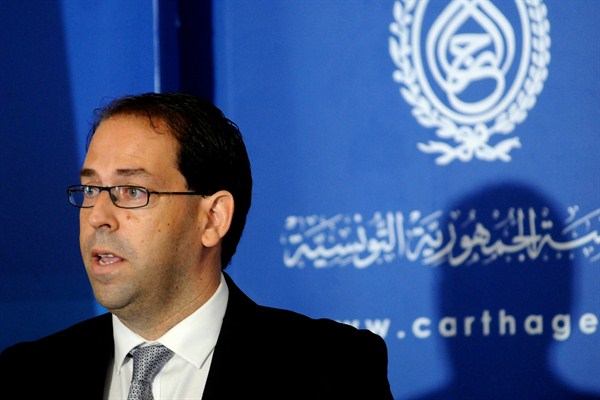Habib Essid, the technocrat who had been Tunisia’s prime minister for the past 18 months, lost a vote of no confidence on July 30. And unlike most issues in Tunisian politics, that decision wasn’t the subject of extensive debate—all but three members of parliament voted him out.
Few were surprised by Essid’s ousting. He had by most measures failed to achieve what he had been appointed in February 2015 to do: enact economic reforms, boost employment and improve security.
“The vote of no confidence was inevitable,” says Sarah Yerkes, a visiting fellow in the Center for Middle East Policy at the Brookings Institution. “What it comes down to is the deep struggle between the forces of pro- and anti-economic reform.”

